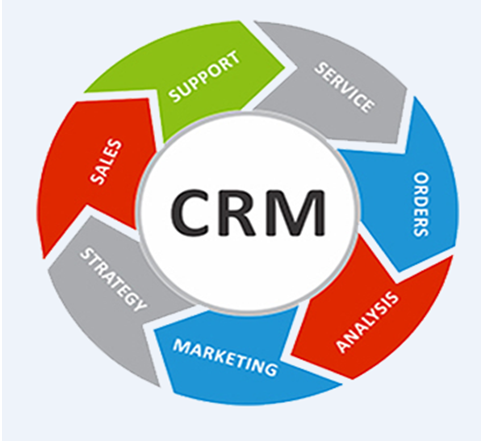IMPACT OF CUSTOMER RELATIONSHIP MARKETING ON CUSTOMER RETENTION
Customer retention refers to the process of taking certain steps by companies and enterprises to minimize the number of customer defections. Brand loyalty is the crux of customer retention, so companies take up various strategies to retain their customers over long periods of time.
These strategies and policies are what is referred to as customer relationship marketing. These tactics affect the customer retention of a company in significant ways and are crucial for the long term growth of any business venture.
Aim
The aim of executing this assignment is to find out the effect of customer relationship marketing on the customer retention of a company.
Objectives
- To understand how customer relationship marketing impacts customer retention.
- To understand how feasible various strategies of customer relationship marketing are.
- To determine how customer relationship marketing affects customer retention.
- To find out the different challenges faced by the management regarding customer retention.
- Why is customer retention important for any business enterprise?
- What makes customer relationship marketing crucial and how it impacts customer retention?
- What are the important factors that drive customer retention?
Number of research papers on this topic, though ample, is not conducted on a varied geography. Hence, information is limited. In addition, many companies prefer to keep their business data private.
2.1. Concepts of customer relationship management for customer retention
CRM or customer relationship management refers to the various ways in which enterprises try to reduce customer defection. Maintaining proper communication with their customers is paramount for any venture to retain said customers (Mokhtaruddin et al. 2018).
Companies use the knowledge they have on their clients to build a bond of trust between them to create a strong brand loyalty. They are aware that building this relationship is extremely vital to create a long lasting and faithful customer base, which in turn will generate higher profits for the company in the future.
Additionally, business enterprises also deliver various incentives to their clientele that reward them for sticking to those companies (Nuseir, 2016).
2.2. Importance of customer relationship in development of an organization
Customer relationship management is critical for the long term growth of any organization. Companies spend such immense amount of effort on customer relations because they realize that customer retention can be extremely lucrative for them in the long run (Ranjbar & Rezaei, 2017).
Customer relationship management can have a host of benefits for both the parties, such as bettering customer satisfaction, producing data of strategic significance, improving the chances of retaining current customers. Additionally, customer relations can be helpful with not only dealing with existing customers but they can also potentially procure newer customers.
The process begins with identifying a new client and then sophistically following them with them with a successful bargain (Rahimi & Kozak, 2017).

Figure 1: Parts of Customer Relationship Management
(Source- Nuseir, 2016)
The approach for this research regarding the impact of customer relation management on customer retention will be qualitative as well as quantitative.
The research method to be used in this assignment will be interview and survey. Survey will be conducted of various respondents connected to the field and the interviews will be taken of managers and members of the hierarchy of a number of business enterprises.
There are four primary research philosophies that are acknowledged by authors and experts- the realist philosophy, the pragmatic philosophy,the positivist philosophy and the interpretivist philosophy. This particular assignment will follow the positivist philosophy.
Research design is of four types- correlational, quasi experimental, experimental and descriptive. This assignment follows the descriptive design.
The number of respondents to participate in the survey will be 25, from various departments. Apart from that, there will be 3 interviewees for different organisations.
The interviews will be in the purposive sampling method, whereas the survey will be conducted in the random sampling method.
3.7. Data collection and Analysis
Primary data collection as well as secondary data collection methods will be employed in the assignment. The survey and interview will be in the primary data collection method, but the references will be in the secondary data collection method.
The data collection will be done in accordance with the Data Protection Act of 2018. Any and all private data of the companies will be kept undisclosed and information ethics will be maintained.
| Activities | 0-4 weeks | 4-8 weeks | 8-12 weeks | 12-16 weeks | 16-20 weeks | 20-24 weeks |
| Selection of the topic | ● | |||||
| Frame out the research structure | ● | |||||
| Literature review | ● | ● | ● | |||
| Primary data collection | ● | |||||
| Formation of research plan | ● | |||||
| Identifying the research technique | ● | |||||
| Analysis of data | ● | |||||
| Conclusion and recommendation | ● | |||||
| Formation of draft | ● | |||||
| Submission of the research study | ● |
Mokhtaruddin, S. A. B., Wel, C. A. B. C., Alam, S. S., & Khalid, N. R. B. (2018). The influence of relationship marketing orientation (RMO) on customer retention in travel agency services. International Journal of Academic Research in Business and Social Sciences, 8(2), 713-724. Retrieved from: http://hrmars.com/hrmars_papers/The_Influence_of_Relationship_Marketing_Orientation_(RMO)_on_Customer_Retention_in_Travel_Agency_Services.pdf
Nuseir, M. T. (2016). Exploring the use of online marketing strategies and digital media to improve the brand loyalty and customer retention. International Journal of Business and Management, 11(4), 228-238. Retrieved from: https://pdfs.semanticscholar.org/9764/3b9313642d6643c3913ce0ce6006b3261f32.pdf
Rahimi, R., & Kozak, M. (2017). Impact of customer relationship management on customer satisfaction: The case of a budget hotel chain. Journal of Travel & Tourism Marketing, 34(1), 40-51. Retrieved from: https://wlv.openrepository.com/bitstream/handle/2436/620916/manuscript%20CRM.pdf?sequence=8&isAllowed=y
Ranjbar, M., & Rezaei, F. (2017). The Relationship between CRM and Relationship Marketing Strategies with Customer Satisfaction. Research Journal of Management Reviews. Vol, 3(1), 13-20. Retrieved from: http://www.rjmrjournal.com/fulltext/paper-29012017112749.pdf


